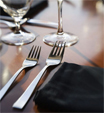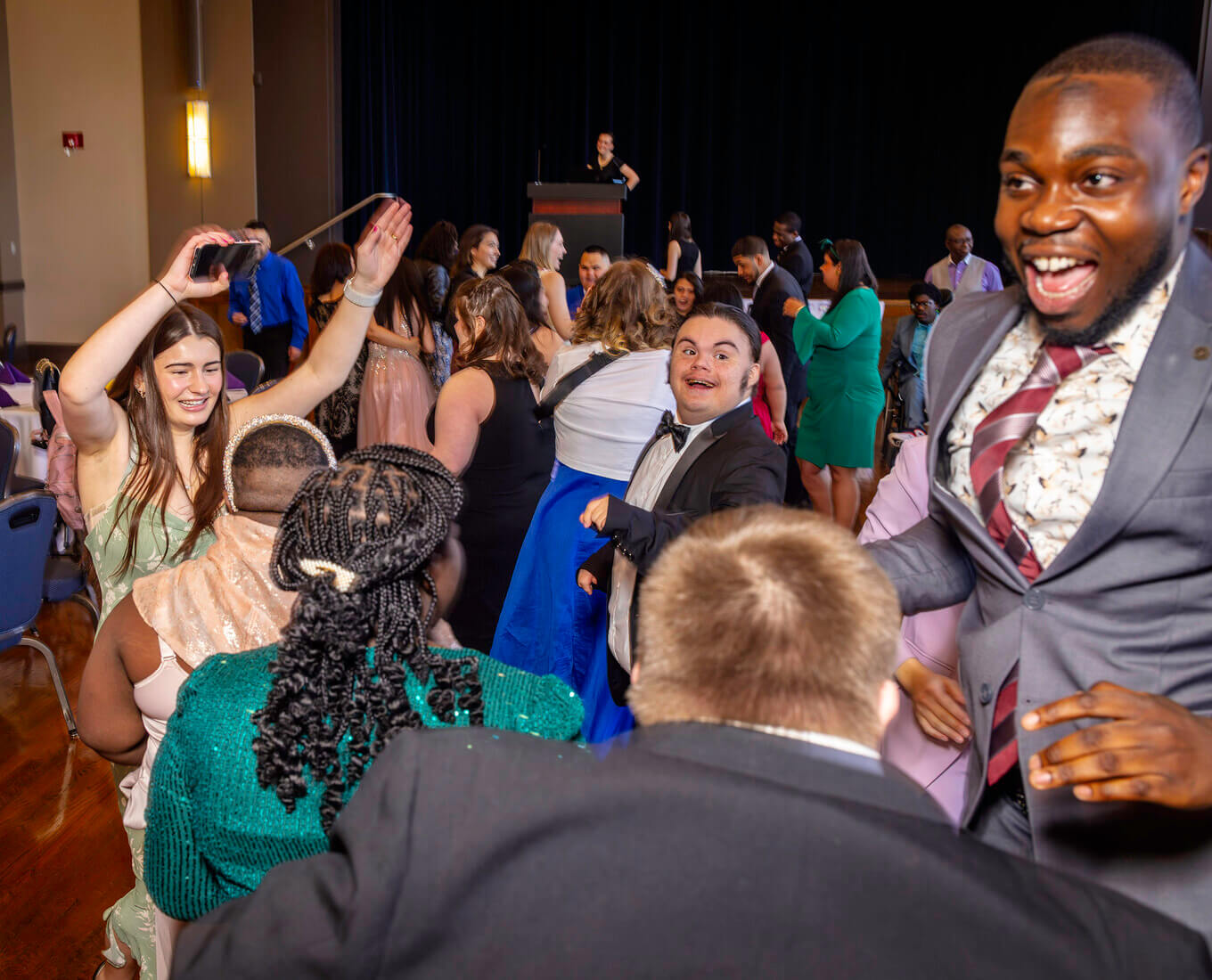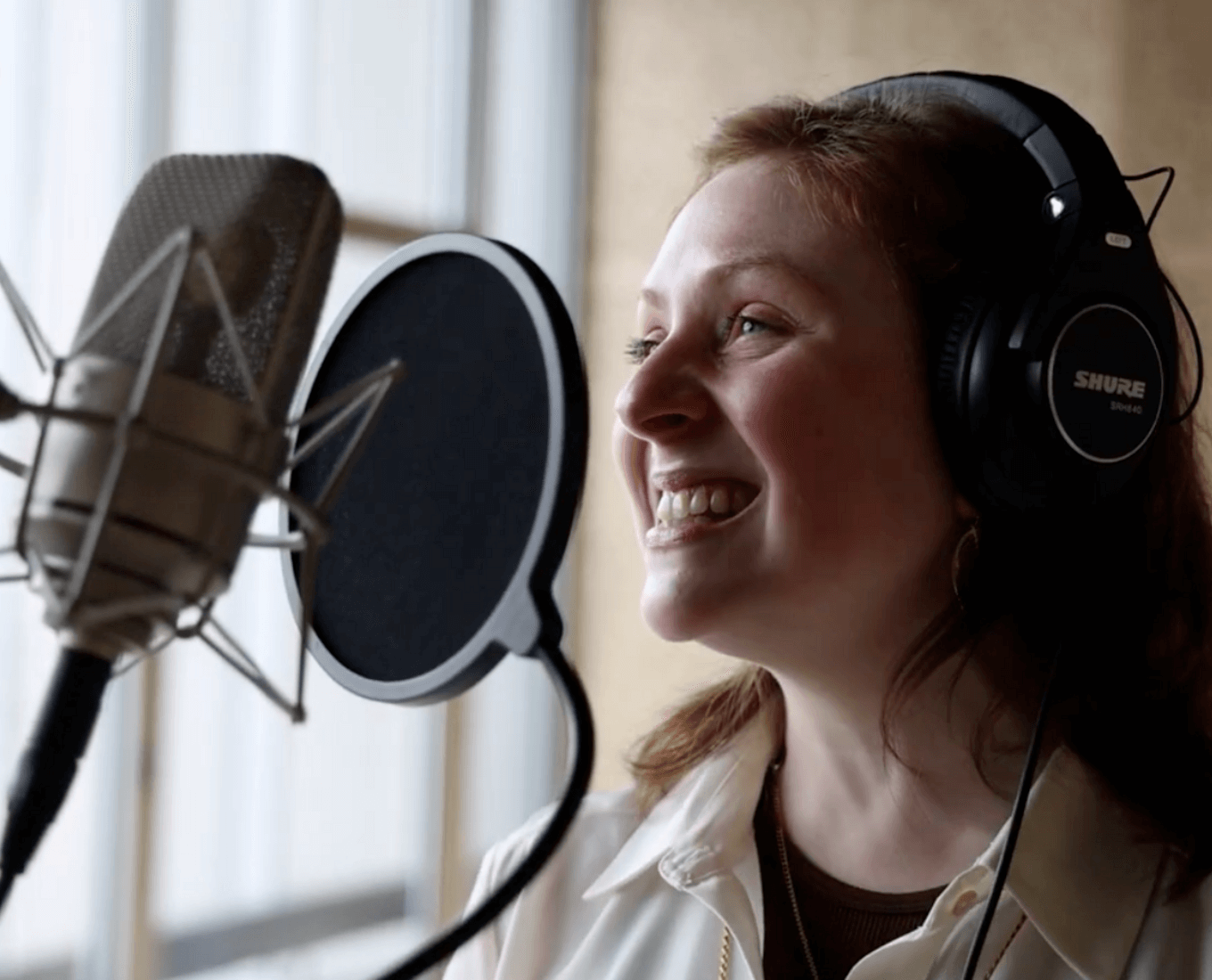 First-year students at Holy Cross received their first lesson in critical thinking at an unlikely setting: the dinner table.
First-year students at Holy Cross received their first lesson in critical thinking at an unlikely setting: the dinner table.
On Aug. 27, two days before classes started, students were challenged to “enter the banquet of the mind” first when Mark Freeman, dean of the Class of 2011, delivered the Dean’s Address and then at the annual President’s Banquet in Kimball Dining Hall. At the latter, they critically discussed — and brought to life — their summer reading assignment, Michael Pollan’s The Omnivore’s Dilemma (Penguin Press, 2006), which was named one of the ten best books of 2006 by the New York Times.
Chosen because of its emphasis on fundamental social, ethical and environmental questions, the book is a fitting introduction to life at Holy Cross, where students are continuously encouraged to join in dialogue about basic human questions. The book also draws connections between living and learning.
“Food is one of the great pleasures of life, and yet we’re often inattentive to it,” says Freeman, who chose the book. “At Holy Cross we try to expand learning beyond the confines of the classroom, and this is one example.”
As Freeman also pointed out in his speech, exploring the process of eating also serves as a very valuable inroad into the process of learning.
“We are omnivores not only when it comes to food but when it comes to knowledge,” Freeman said in his address to students. “And an undergraduate liberal arts education, of the sort you’re about to experience, provides compelling testimony about exactly this. It’s possible, I suppose, that all of you out there could just be ‘fed’ one thing: calculus, architecture, history, whatever … What liberal arts education tries to do is precisely provide an extraordinarily sumptuous banquet, that ensures not only that you develop multiple parts of your brains and minds but that, through this exposure to multiple modes of knowing, you come to exercise your freedom as a human being. It’s about cultivating your very humanness, bringing it to fruition, allowing it to flourish, to flower.”
The dinner, designed to reflect the principles of the Slow Food movement, was conceived and prepared by the staff of Holy Cross Dining (who had also read Pollan’s book) with produce from nearby organic farms and locally-raised livestock. The entrée included roasted Townsend Farm free range organic chicken with J.P. Sullivan Orchards apple salsa, Lanni Orchards wax and green bean medley, and mixed whole grain pilaf.
The event drew the attention of USA Today, which reported that common readings across the nation’s colleges and universities, like The Omnivore’s Dilemma, “serve a range of purposes, especially for incoming students who are navigating a big transition.”
Freeman said the book is morally inspiring and asked students to reflect upon the following questions as they feasted on the story:
• Why do I eat what I do? How do I make the choices I make?
• How does what I eat relate to how I live — or ought to live — my life? Should I be making any changes?
• How does what I eat bear upon my understanding of who and what I am, as a human being, living among other beings in the world? How does it “define” what it means to be human?
Students will tackle these and other such questions throughout the year, and Freeman is working on additional programming to further engage the entering class.
Related Information:
• Read about the Class of 2011
• Read more about Slow Food at Holy Cross
• Holy Cross in the News
First-year students tackle basic human questions based on summer reading
Appetite for Learning
Read Time
3 Minutes


